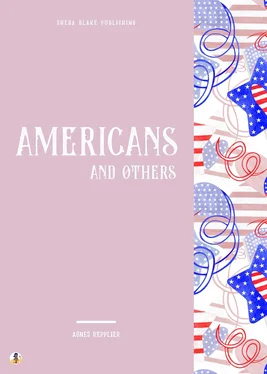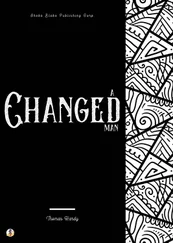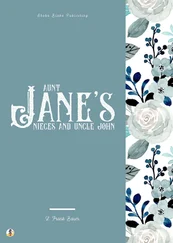Sheba Blake - Americans and Others
Здесь есть возможность читать онлайн «Sheba Blake - Americans and Others» — ознакомительный отрывок электронной книги совершенно бесплатно, а после прочтения отрывка купить полную версию. В некоторых случаях можно слушать аудио, скачать через торрент в формате fb2 и присутствует краткое содержание. Жанр: unrecognised, на английском языке. Описание произведения, (предисловие) а так же отзывы посетителей доступны на портале библиотеки ЛибКат.
- Название:Americans and Others
- Автор:
- Жанр:
- Год:неизвестен
- ISBN:нет данных
- Рейтинг книги:5 / 5. Голосов: 1
-
Избранное:Добавить в избранное
- Отзывы:
-
Ваша оценка:
- 100
- 1
- 2
- 3
- 4
- 5
Americans and Others: краткое содержание, описание и аннотация
Предлагаем к чтению аннотацию, описание, краткое содержание или предисловие (зависит от того, что написал сам автор книги «Americans and Others»). Если вы не нашли необходимую информацию о книге — напишите в комментариях, мы постараемся отыскать её.
Americans and Others — читать онлайн ознакомительный отрывок
Ниже представлен текст книги, разбитый по страницам. Система сохранения места последней прочитанной страницы, позволяет с удобством читать онлайн бесплатно книгу «Americans and Others», без необходимости каждый раз заново искать на чём Вы остановились. Поставьте закладку, и сможете в любой момент перейти на страницу, на которой закончили чтение.
Интервал:
Закладка:
“No,” said my friend. “He has brought the Sunday papers all summer. That is his daughter with him.”
All summer, and no human relations, not enough to prompt a friendly word, had been established between the man who served and the man who was served. None of the obvious criticisms passed upon American manners can explain the crudity of such a situation. It was certainly not a case of arrogance towards a hapless brother of toil. My friend probably toiled much harder than the paperman, and was the least arrogant of mortals. Indeed, all arrogance of bearing lay conspicuously on the paperman’s part. Why, after all, should not his instinct, like the instinct of the French waiter, have bidden him say something; why should not his taste have recommended that the something be agreeable? And then, again, why should not my friend, in whom social constraint was unpardonable, have placed his finer instincts at the service of a fellow creature? We must probe to the depths of our civilization before we can understand and deplore the limitations which make it difficult for us to approach one another with mental ease and security. We have yet to learn that the amenities of life stand for its responsibilities, and translate them into action. They express externally the fundamental relations which ought to exist between men. “All the distinctions, so delicate and sometimes so complicated, which belong to good breeding,” says M. Rondalet in “La Reforme Sociale,” “answer to a profound unconscious analysis of the duties we owe to one another.”
There are people who balk at small civilities on account of their manifest insincerity. They cannot be brought to believe that the expressions of unfelt pleasure or regret with which we accept or decline invitations, the little affectionate phrases which begin and end our letters, the agreeable formalities which have accumulated around the simplest actions of life, are beneficent influences upon character, promoting gentleness of spirit. The Quakers, as we know, made a mighty stand against verbal insincerities, with one striking exception,—the use of the word “Friend.” They said and believed that this word represented their attitude towards humanity, their spirit of universal tolerance and brotherhood. But if to call oneself a “Friend” is to emphasize one’s amicable relations towards one’s neighbour, to call one’s neighbour “Friend” is to imply that he returns this affectionate regard, which is often an unwarranted assumption. It is better and more logical to accept all the polite phraseology which facilitates intercourse, and contributes to the sweetness of life. If we discarded the formal falsehoods which are the currency of conversation, we should not be one step nearer the vital things of truth.
For to be sincere with ourselves is better and harder than to be painstakingly accurate with others. A man may be cruelly candid to his associates, and a cowardly hypocrite to himself. He may handle his friend harshly, and himself with velvet gloves. He may never tell the fragment of a lie, and never think the whole truth. He may wound the pride and hurt the feelings of all with whom he comes in contact, and never give his own soul the benefit of one good knockdown blow. The connection which has been established between rudeness and probity on the one hand, and politeness and insincerity on the other, is based upon an imperfect knowledge of human nature.
“So rugged was he that we thought him just, So churlish was he that we deemed him true.”
“It is better to hold back a truth,” said Saint Francis de Sales, “than to speak it ungraciously.”
There are times doubtless when candour goes straight to its goal, and courtesy misses the mark. Mr. John Stuart Mill was once asked upon the hustings whether or not he had ever said that the English working-classes were mostly liars. He answered shortly, “I did!”—and the unexpected reply was greeted with loud applause. Mr. Mill was wont to quote this incident as proof of the value which Englishmen set upon plain speaking. They do prize it, and they prize the courage which defies their bullying. But then the remark was, after all, a generalization. We can bear hearing disagreeable truths spoken to a crowd or to a congregation—causticity has always been popular in preachers—because there are other heads than our own upon which to fit the cap.
The brutalities of candour, the pestilent wit which blights whatever it touches, are not distinctively American. It is because we are a humorous rather than a witty people that we laugh for the most part with, and not at, our fellow creatures. Indeed, judged by the unpleasant things we might say and do not say, we should be esteemed polite. English memoirs teem with anecdotes which appear to us unpardonable. Why should Lady Holland have been permitted to wound the susceptibilities of all with whom she came in contact? When Moore tells us that she said to him, “This book of yours” (the “Life of Sheridan”) “will be dull, I fear;” and to Lord Porchester, “I am sorry to hear you are going to publish a poem. Can’t you suppress it?” we do not find these remarks to be any more clever than considerate. They belong to the category of the monumentally uncouth.
Why should Mr. Abraham Hayward have felt it his duty (he put it that way) to tell Mr. Frederick Locker that the “London Lyrics” were “overrated”? “I have suspected this,” comments the poet, whose least noticeable characteristic was vanity; “but I was none the less sorry to hear him say so.” Landor’s reply to a lady who accused him of speaking of her with unkindness, “Madame, I have wasted my life in defending you!” was pardonable as a repartee. It was the exasperated utterance of self-defence; and there is a distinction to be drawn between the word which is flung without provocation, and the word which is the speaker’s last resource. When “Bobus” Smith told Talleyrand that his mother had been a beautiful woman, and Talleyrand replied, “_C’etait donc Monsieur votre pere qui n’etait pas bien_,” we hold the witticism to have been cruel because unjustifiable. A man should be privileged to say his mother was beautiful, without inviting such a very obvious sarcasm. But when Madame de Stael pestered Talleyrand to say what he would do if he saw her and Madame Recamier drowning, the immortal answer, “_Madame de Stael sait tant de choses, que sans doute elle peut nager_,” seems as kind as the circumstances warranted. “Corinne’s” vanity was of the hungry type, which, crying perpetually for bread, was often fed with stones.
It has been well said that the difference between a man’s habitual rudeness and habitual politeness is probably as great a difference as he will ever be able to make in the sum of human happiness; and the arithmetic of life consists in adding to, or subtracting from, the pleasurable moments of mortality. Neither is it worth while to draw fine distinctions between pleasure and happiness. If we are indifferent to the pleasures of our fellow creatures, it will not take us long to be indifferent to their happiness. We do not grow generous by ceasing to be considerate.
As a matter of fact, the perpetual surrender which politeness dictates cuts down to a reasonable figure the sum total of our selfishness. To listen when we are bored, to talk when we are listless, to stand when we are tired, to praise when we are indifferent, to accept the companionship of a stupid acquaintance when we might, at the expense of politeness, escape to a clever friend, to endure with smiling composure the near presence of people who are distasteful to us,—these things, and many like them, brace the sinews of our souls. They set a fine and delicate standard for common intercourse. They discipline us for the good of the community.
We cannot ring the bells backward, blot out the Civil War, and exchange the speed of modern life for the slumberous dignity of the Golden Age,—an age whose gilding brightens as we leave it shimmering in the distance. But even under conditions which have the disadvantage of existing, the American is not without gentleness of speech and spirit. He is not always in a hurry. He is not always elbowing his way, or quivering with ill-bred impatience. Turn to him for help in a crowd, and feel the bright sureness of his response. Watch him under ordinary conditions, and observe his large measure of forbearance with the social deficiencies of his neighbour. Like Steele, he deems it humanity to laugh at an indifferent jest, and he has thereby earned for himself the reputation of being readily diverted. If he lacks the urbanities which embellish conversation, he is correspondingly free from the brutalities which degrade it. If his instinct does not prompt him to say something agreeable, it saves him from being wantonly unkind. Plain truths may be salutary; but unworthy truths are those which are destitute of any spiritual quality, which are not noble in themselves, and which are not nobly spoken; which may be trusted to offend, and which have never been known to illuminate. It is not for such asperities that we have perfected through the ages the priceless gift of language, that we seek to meet one another in the pleasant comradeship of life.
Читать дальшеИнтервал:
Закладка:
Похожие книги на «Americans and Others»
Представляем Вашему вниманию похожие книги на «Americans and Others» списком для выбора. Мы отобрали схожую по названию и смыслу литературу в надежде предоставить читателям больше вариантов отыскать новые, интересные, ещё непрочитанные произведения.
Обсуждение, отзывы о книге «Americans and Others» и просто собственные мнения читателей. Оставьте ваши комментарии, напишите, что Вы думаете о произведении, его смысле или главных героях. Укажите что конкретно понравилось, а что нет, и почему Вы так считаете.












